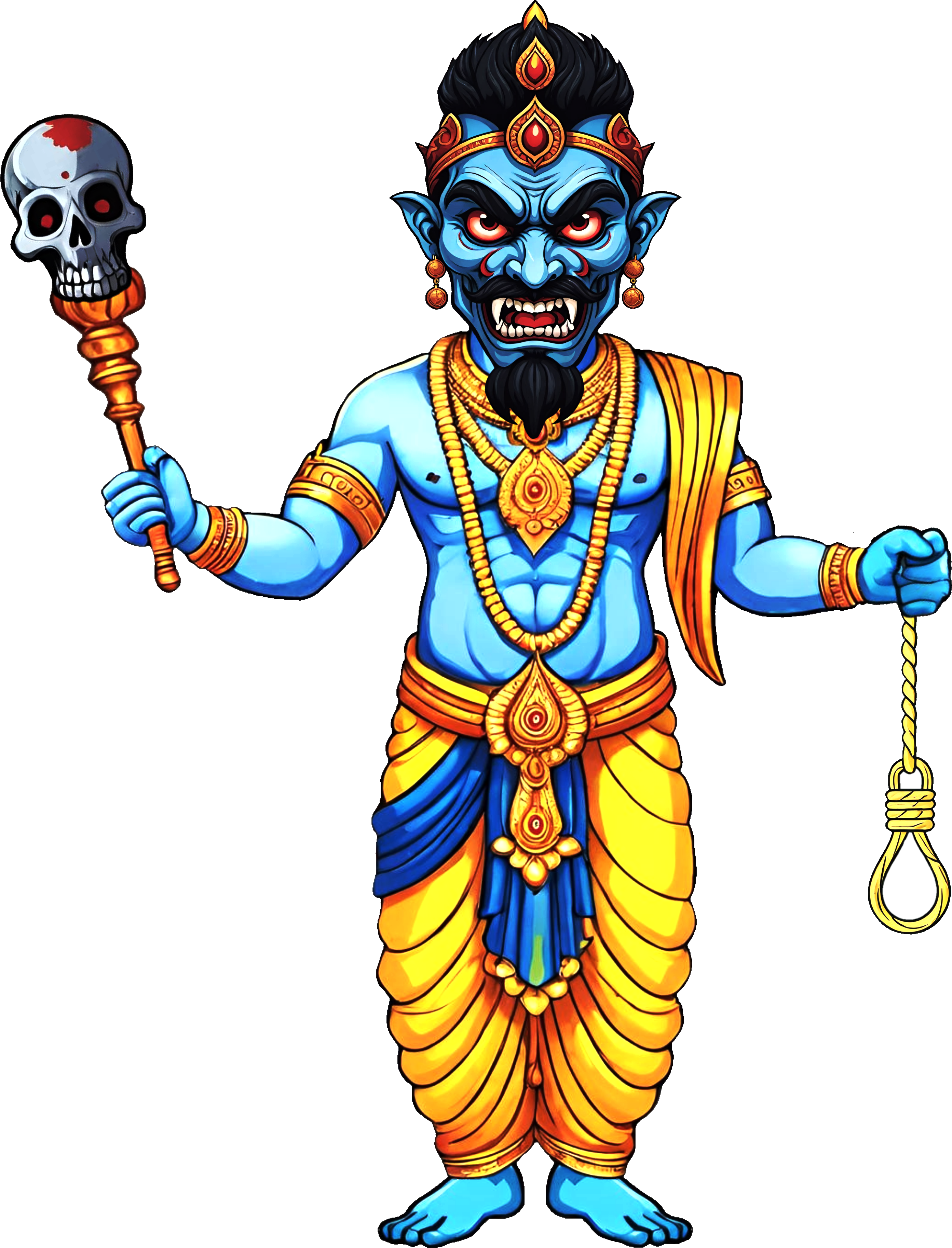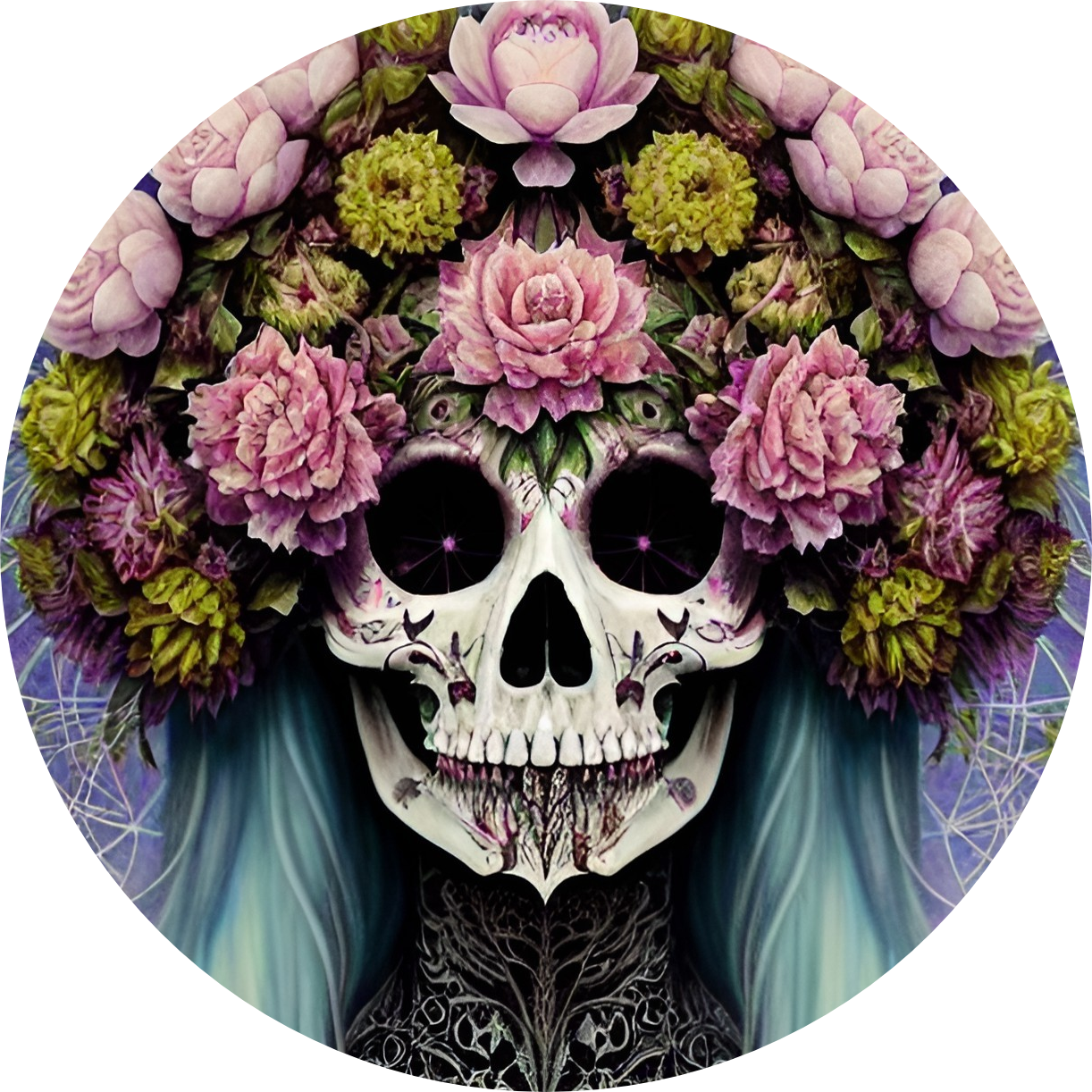Also known as
Kala meaning
Time or
Dharmaraja meaning
King of Dharma or other titles such as the
Restrainer,
Twin or
King of Ghosts, Yama is the god of
death, justice and naraka (the underworld). He is also a
Dikpala, acting as the guardian of the southern direction. His role is that of
judging the souls of the dead, determining their fate after death. With the aid of
Chitragupta, his scribe, Yama carefully examines the dharma and karma of the dead, judging the sum of their life and their deeds before sending them to svarga (heaven), naraka or to reincarnate. For his dark nature and relation to death, Yama is most associated with
Zalikar or
Azryth but this role isn't met with the same reproach in Sanjatanis myth as it sees in other cultures!
Several Devas oversee and maintain order and morality, but it is Yama who enforces it amid the dead making him the ultimate
judge and enforcer of dharma and rta (cosmic order)! His judgement looms on the horizon of
every soul--inescapable and inevitable. While Yama is both revered and feared, known to be stern and unwavering, he is an entity distinctly
moved by righteousness and devotion! Compasionate, just and reasonable among the Devas, he urges every man towards moral behavior, representing
restraint, control and justice.
Yama is a god born from the union of
Surya and Sanjna, the eldest among their children. He also has a twin sister, Yami, who is the goddess of the
Yamuna River--contrastingly a goddess of life. Their younger siblings include the
Ashvins,
Manu,
Revanta,
Shani and
Tapati. Both Yama and Yami are honored together in the festival
Yama Dwitiya or
Bhai Dooj, occuring two days after the holiday of
Diwali. It celebrates the bonds between brothers and sisters, Yama believed to visit Yami on this day every year to receive a special meal from her. It is believed that Yama will bless any brother who receives a
tilak mark from his sister, granting them longevity! Most rituals devoted to Yama are made seeking a long and righteous life or protection from untimely death. They might offer prayers, recite his mantra the
Yama Gayatri, light lamps and offer him sacrifices. In fact, despite being a dark entity, temples to Yama dot
Bharatavarsa and beyond. Pilgrims gather in his halls every year, seeking the protection of their ancestors or praying for the wellbeing of the deceased.







Comments